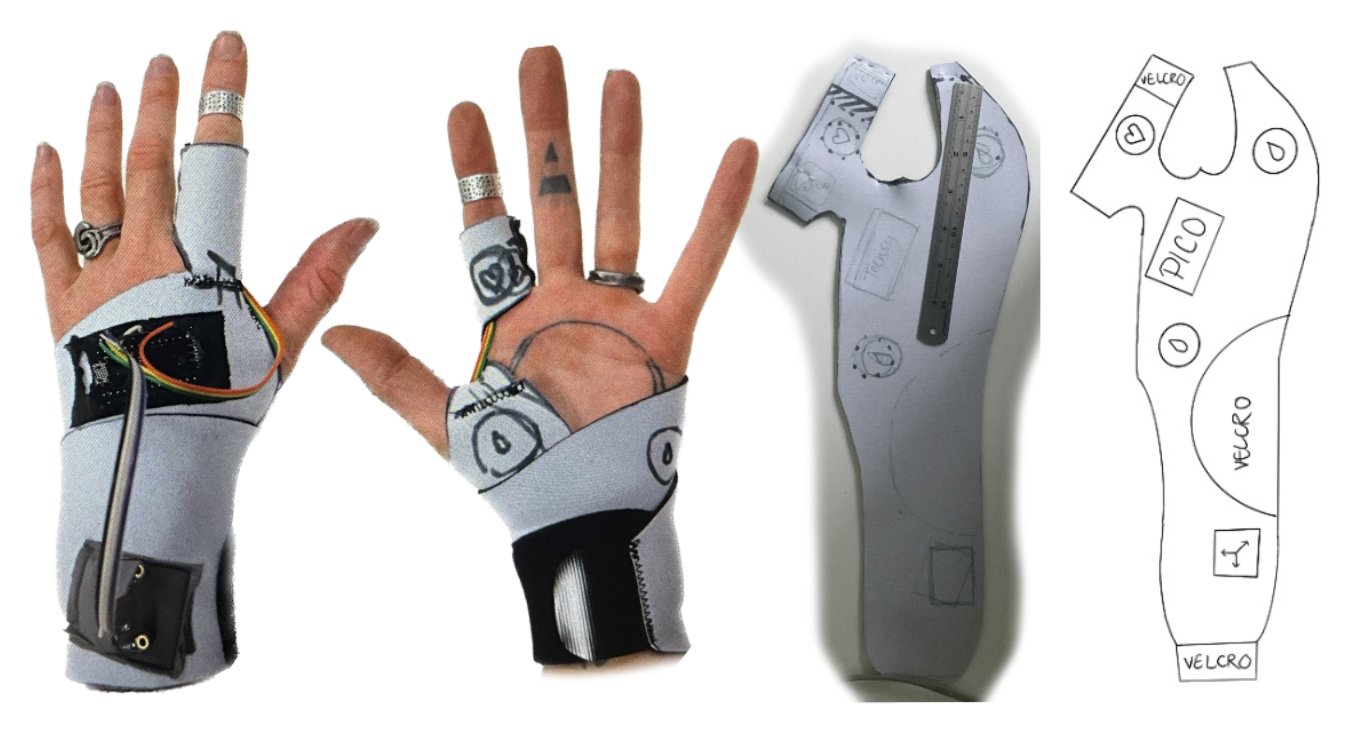IRL researcher collaborates with max planck institute for informatics
above: design ideas for a wrap-style cuff to securely hold a suite of sensors
During July and August of 2023, researcher Rachel Freire was invited to the Max Planck Institute for Informatics (MPII) in Saarbrucken, Germany to collaborate with the Sensorimotor Interaction Group.
The aim of the collaboration was to improve on the open-source gloves currently used by the IRL as a tactile way to interact with molecules in VR. The gloves are used in the NanoVer molecular simulation application as well as other multi-person VR systems, including Isness.
Rachel has expertise in on-body design, and the tangible and tactile complexities of the tools and interfaces we design to interact with technology. The collaboration laid the groundwork for how best to mount multiple glove-based sensors in such a way that we can gather stable tracking data for molecular manipulation and also to ensure the user experience is not adversely affected by the sensor devices themselves.
The intention is to incorporate existing commercial sensors into more customised designs. These commercial sensors and their simplistic carriers are primarily tested and marketed for clinical studies in which the participants are not moving very much. Rachel explored the form factors of gloves (see right) and the placement of sensors, looking at which parts of the hands and torso are most suited to stable readings when a participant is moving.

